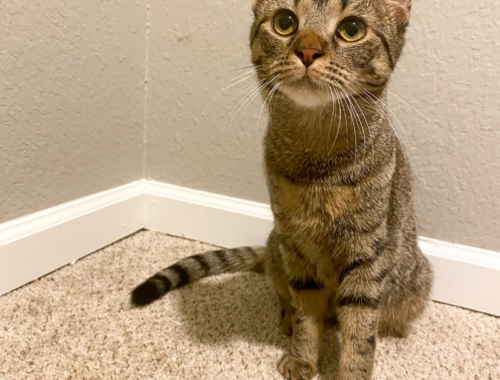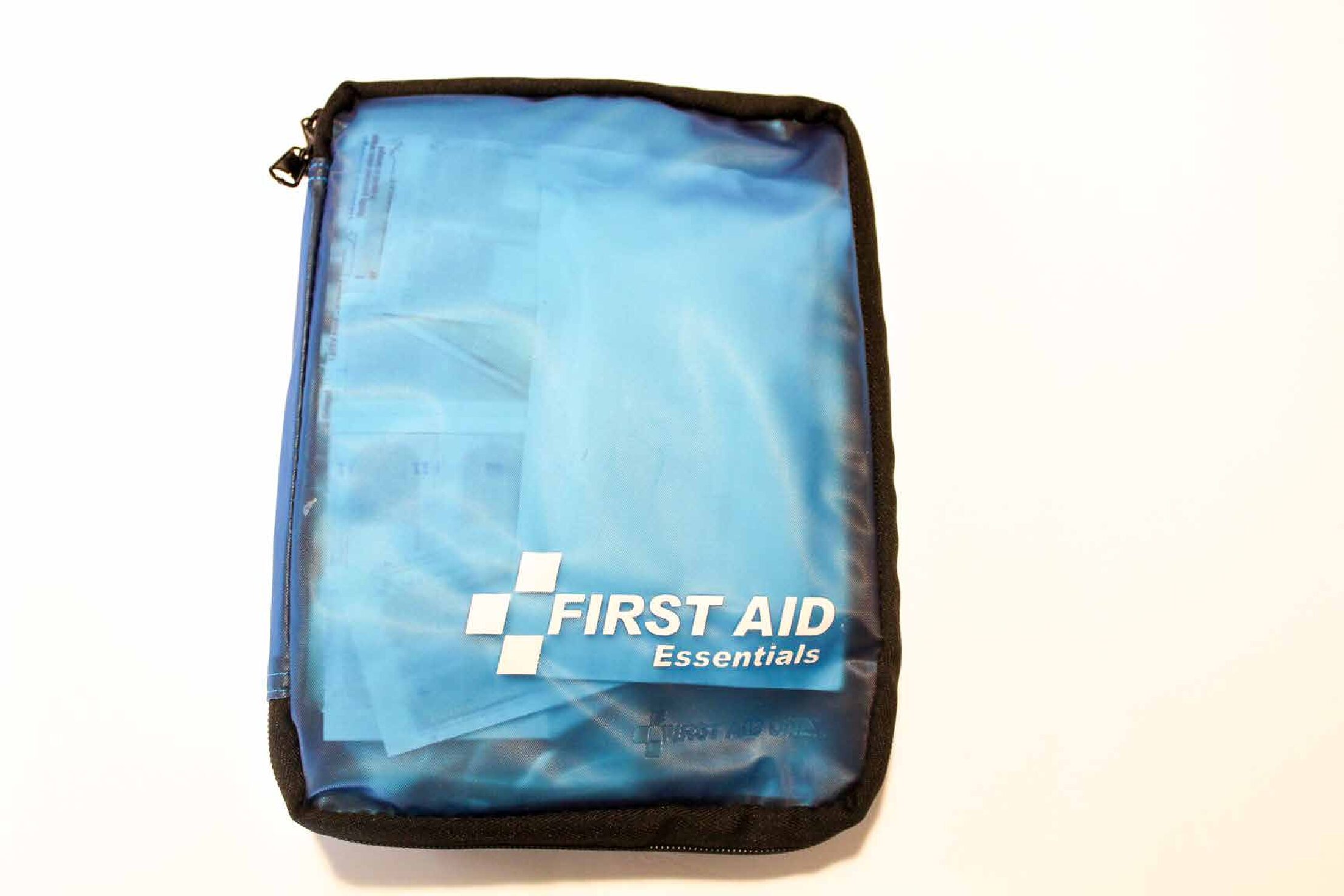
DOES MY CAT REALLY NEED TO GO TO THE VET EVERY YEAR?
We all want to make sure our cats are healthy, and the best way to do this is to keep up with their preventative care and annual check-ups at the vet. Not only is it good to get a check-up and make sure your cat is healthy, but it can also be useful in catching some issues or diseases early. Having a yearly exam also helps keep your relationship with your veterinarian in good standing. Preventing diseases is much better than treating them, and in many cases, cheaper in the long run.
Check-up
Just like people, your cat should have a check-up at least once a year at their veterinarian. For kittens, this may be monthly in the early stages, to ensure proper weight gain and growth, as well as making sure they are staying healthy. Young adult to adult cats are typically recommended to be seen once a year. Older cats may need multiple visits a year, especially if starting to develop health problems. Cats age faster than people. One year for people can be anywhere from five to ten years in cats. Imagine if you aged that quickly, how fast health problems can come up! A wellness exam mainly includes a general physical exam and their vaccinations, and for older cats may include some bloodwork.
A physical exam will typically include, but not limited to:
- A history from you about how your pet has been doing. If you have any concerns or areas that you want them to check out, they can do so. The veterinarian will also ask you certain questions about your cat’s daily lifestyle to see if there are any red flags you may not have noticed.
- Listening to the heart and lungs
- Taking their temperature
- Checking their nose, ears, and eyes for any infections or discharge
- Checking their teeth for any broken teeth, plaque build-up, gum infections, etc. Dental disease is very common in older cats.
- Getting the weight to make sure it is staying steady. Weight gain or loss can signify diseases.
- Feeling their abdomen for any abnormal enlargement of organs, pain, etc.
- Checking their skin/fur for any hair loss, itchiness, shedding, mats, etc.
Bloodwork
In some cases, especially older cats, veterinarians will recommend running a complete blood count and chemistry panel. It may also include and urinalysis and fecal too. These tests are done as a preventative measure to detect any problems that could be going on, or just beginning, in your cat. A fecal may be done to check for intestinal parasites. A urinalysis to screen kidney function, as well as check for any urinary tract infections. Bloodwork can screen for many things, such as infection, internal organ function, dehydration, inflammation, and more. As cats get older, they are prone to developing hyperthyroidism. Some veterinarians may suggest checking their thyroid levels as they age to screen for early stages of this disease too.
Cats tend to mask and hide illness very well, so there may be something going on with internal organs in your cat which they show no symptoms for. Checking these things may catch the disease or illness early and you can treat it before any irreversible damage occurs to your cat’s health. Catching and treating early can also improve the outcome for your cat.
Kittens and new cats with unknown histories will get an FIV/FeLV test. FIV (Feline Immunodeficiency Virus) and FeLV (Feline Leukemia Virus) are both fatal diseases that can affect cats. They are transmitted through saliva and other body fluids, so care should be taken when introducing them into a household with other cats. FIV is not as easily transmitted between cats as FeLV, because it requires a bite wound, whereas FeLV can be spread through grooming or drinking from the same bowl.
Vaccines
Vaccinations help stimulate your cat’s immune system and help it recognize harmful pathogens that can cause disease if not fought off. They are split into core and non-core vaccines. The core vaccines are the ones your cat should get or may be required to have, while the non-core are optional. Depending on where you live, these may differ, but Rabies and FVRCP are typically considered core vaccines. As always, no vaccine is 100% effective, but they are key players in helping your cat fight off these infections if they were to ever come in contact with them.
There is also an option to check your cat’s titers rather than vaccinating them every year. Titers check their immunity status against a particular disease, and may indicate that they have adequate protection and do not actually need another dose of the vaccine yet. Talk to your vet about this option if you would prefer to do that.
Rabies
- Rabies is a viral disease that is almost always fatal. It can be spread to people through wildlife animals, but also your pets if they have been in contact with a rabid animal.
- As an outdoor cat, this is extremely important to have. But indoor cats are also required to have the vaccine as you never know if your cat may accidentally slip outside.
- This vaccine is given either every one year or three years, or you can chose to check their titers instead too.
- Many states actually require by law that cats to have an up to date rabies vaccine.
FVRCP
- FVRCP is a combination vaccine against Feline Viral Rhinotracheitis, Calicivirus, and Panleukopenia.
- Feline viral rhinotracheitis is caused by the feline herpesvirus and is a major cause of upper respiratory disease in cats. It typically causes eye problems as well. Cats can get this at any age based on exposure to a positive cat. Once a cat gets infected, they have this disease for life, and can have flare-ups throughout their lives.
- Calicivirus also causes upper respiratory disease in cats, but instead of eye issues, it can affect the issues with their mouths. Cats can contract this virus at any age and there is no specific treatment, and you will typically just treat your cat for whichever symptoms they have. Once they recover, they have the chance of becoming a carrier and can spread it to other cats they are around. This can last anywhere from a month to the rest of their life.
- Panleukopenia is a virus that affects your cats white blood cells. White blood cells are what attacks foreign particles in your cat’s system, so having less makes your cat more vulnerable to diseases. Again, there is no specific treatment and you will be treating the symptoms your cat has. Some serious, life-threatening issues can occur if not treated properly, however if proper care is taken, your cat can make a full recovery.
- As kittens, this is given in a series. The first shot is given around 6-8 weeks of age and then they get a booster every month for the next three months. After that, the vaccine is typically given once a year, or you can have their titers check instead.
- FVRCP is a combination vaccine against Feline Viral Rhinotracheitis, Calicivirus, and Panleukopenia.
Feline Leukemia
- This is a virus in cats that is transmitted through salvia and other body fluids. This can occur while cats groom each other, share water bowls, among other things.
- This virus is unfortunately fatal. It does affect outdoor cats more commonly.
- Whenever adding a new cat to the household, it should always be tested for FeLV before being introduced to the other cats.
- As kittens, this vaccine is given as a series of two shots. After that, the vaccine given once a year.
Bordetella
- Bordetella is a bacterial infection that causes respiratory disease. It is typically recommend (and sometimes required) for cats going to groomers or boarding facilities, as that is the most common place for your cat to contract the virus
- This vaccine will not prevent your cat from getting the disease, but can help them from getting very sick from it.
Preventative medications
Many veterinarians will recommend flea, tick, and heartworm prevention for your cat to be on year-round. Even if your cat is indoor only, you cat can still be at risk. You can carry fleas in if you were in contact with an animal that had them. Heartworm is transmitted through mosquitoes, which can always sneak their way into your house too and bite your cat. There are collars, topical liquids, and chewable tablets available from various brands. Speak to your veterinarian about the best option for your cat, as well as what brands they carry.
Overview
Even if your cat is not sick, yearly check-ups with your vet are an essential component for keeping them happy and healthy. Talk to your veterinarian to see how often they think your cat should be seen and they can further discuss what they feel should be checked at each appointment based on your cat’s age, lifestyle, health status, and other things. And remember, preventing disease is a lot better than treating it!

MEET KITSUNE
You May Also Like

How To Start Clicker Training With Your Cat
January 22, 2021
HOW TO MAKE A FIRST-AID KIT FOR YOUR PET
June 19, 2020

